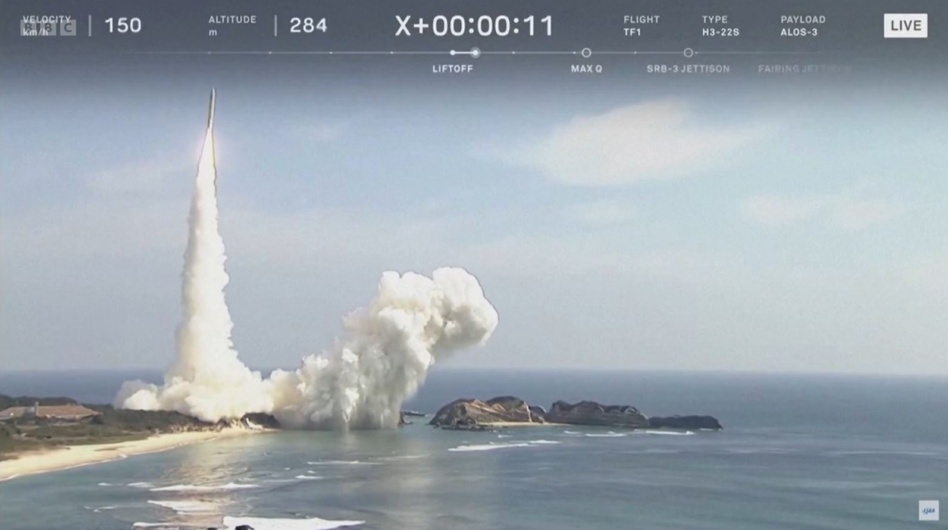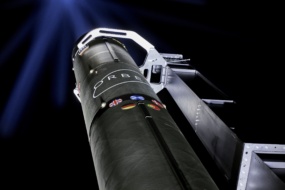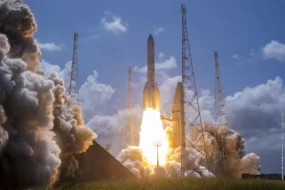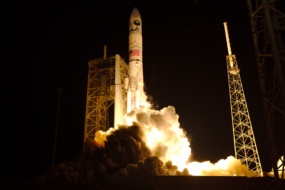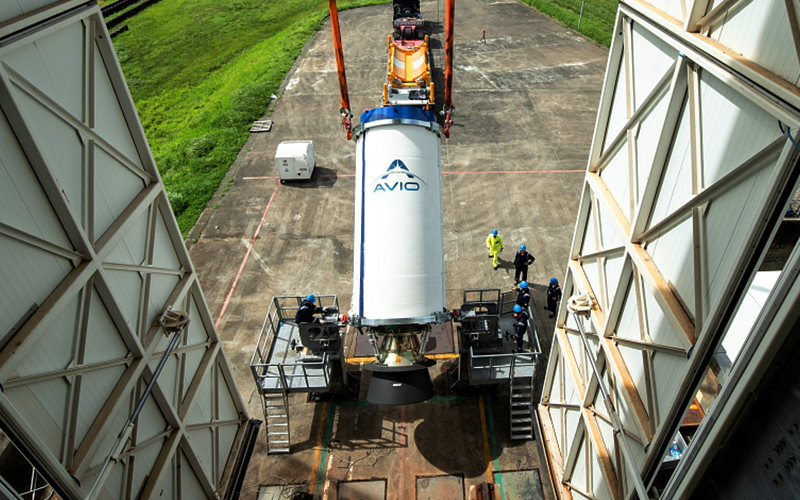Last night, JAXA’s H3 rocket debut ended in failure. The Japanese space agency was forced to send termination commands to the launcher a few minutes into the flight, when the engine on the second stage failed to ignite.
The road so far: JAXA has been building the H3 rocket, intended as a less expensive successor to the H2-A, since 2013. The expendable rocket has similar lift capabilities to its predecessor and to the Falcon 9, and the agency originally targeted a price point of $51M per launch. H3 is intended to work for both commercial and government missions.
Since the H3 program began a decade ago, JAXA and Mitsubishi Heavy Industries, the rocket’s prime contractor, have sunk $1.5B into development.
Kaboom: JAXA launched H3 last night at 8:37pm ET from Tanegashima Space Center. The rocket appeared to fly nominally at first, but about seven minutes after launch, commentators on the livestream reported that the rocket was losing velocity.
The second stage engine had failed to ignite.
Fourteen minutes into the flight, JAXA sent a destroy command. The second stage and its payload, the ALOS-3 EO satellite, fell into the ocean off the coast of the Philippines.
Looking forward: We’ve said it before and we’ll say it again—space is hard.
“Our top priority is to do everything we can to find the cause and regain the trust in our rockets,” JAXA President Hiroshi Yamakawa said at a post-mission press conference. “We need to figure out what we should do to successfully achieve the next launch.”
